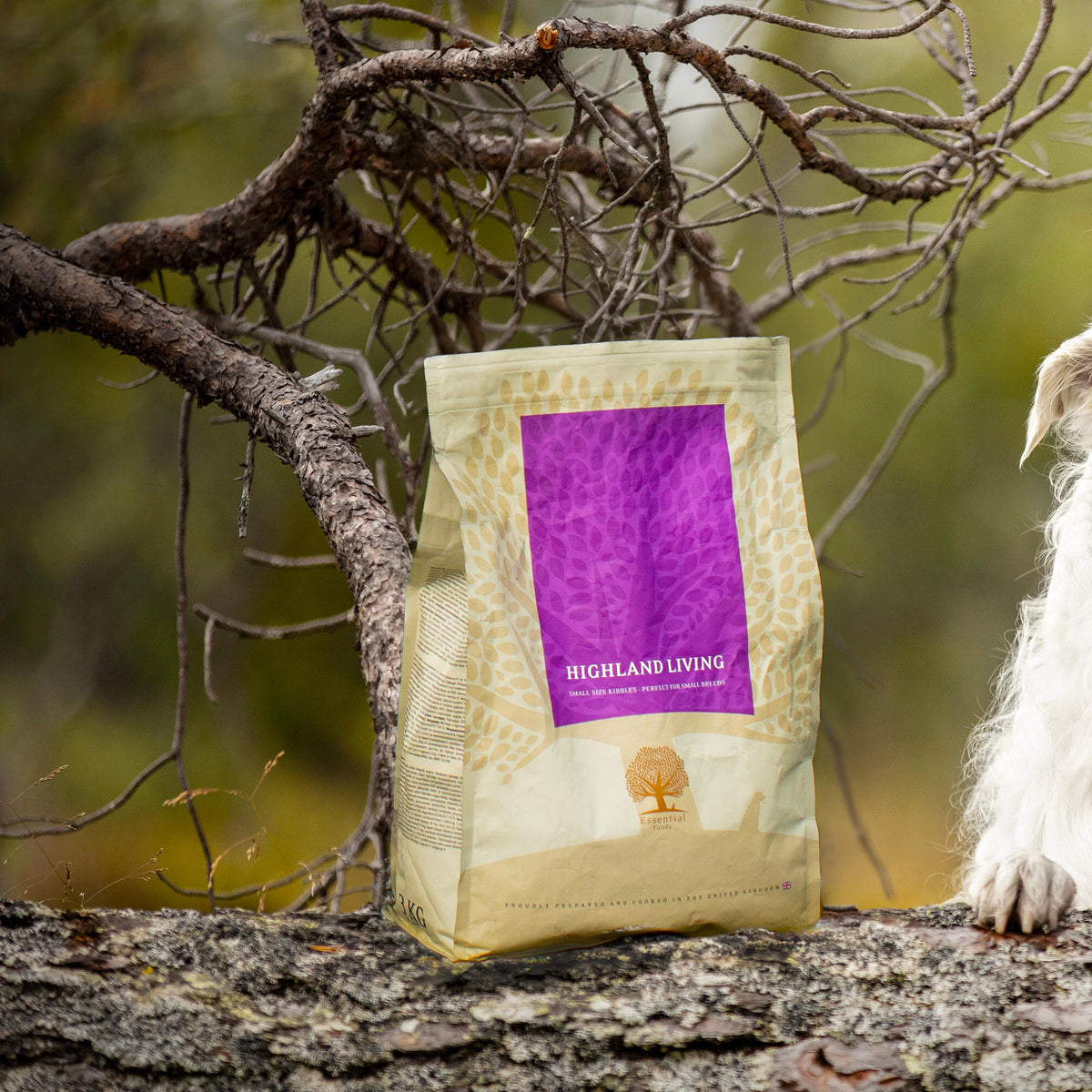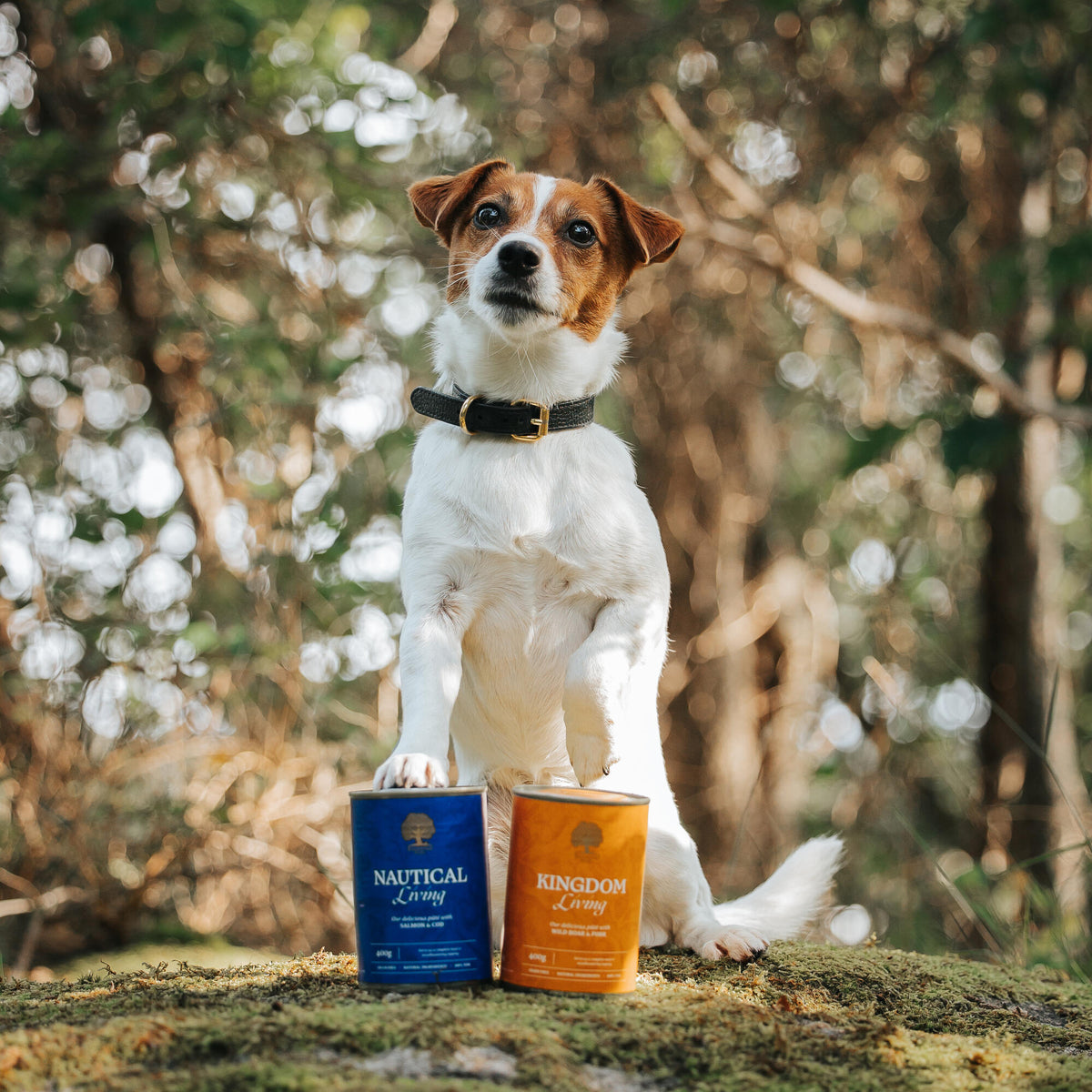As our beloved canine companions age, their nutritional needs evolve, prompting many pet owners to wonder: senior dog food vs regular - what's the difference? In this detailed guide, we'll explore the nuances between these two types of dog food, emphasizing the importance of tailored nutrition for senior dogs. We'll delve into the significance of keywords like grain-free dog food, natural dog food, and senior dog food, and ultimately uncover why Essential Dog Food stands out as the best choice for senior dogs.
Unraveling the Distinctions: Senior Dog Food vs Regular
Understanding the differences between senior dog food and regular dog food is crucial for providing optimal care to aging pets.
Regular Dog Food
Regular dog food is formulated to meet the nutritional needs of adult dogs in their prime years. It typically contains a balanced blend of protein, carbohydrates, fats, vitamins, and minerals to support overall health and vitality. While regular dog food provides adequate nutrition for adult dogs, it may not address the specific needs of senior dogs, such as joint health, digestion, and immune support.
Senior Dog Food
Senior dog food, on the other hand, is specially designed to cater to the changing needs of aging dogs. As dogs enter their senior years, their metabolism slows down, their activity levels decrease, and they may develop age-related health issues. Senior dog food is formulated with lower calorie content to prevent weight gain, easier-to-digest ingredients to promote digestive health, and added supplements like glucosamine and chondroitin to support joint function and mobility.
The Importance of a Grain-Free, Natural ,Senior Dog Food.
Grain-Free Dog Food
Grain-free dog food has gained popularity in recent years, with many pet owners opting for this type of diet due to concerns about food allergies and sensitivities. Grain-free formulations exclude common grains like wheat, corn, and soy, which can trigger allergic reactions in some dogs. Instead, they utilize alternative carbohydrate sources like sweet potatoes, peas, and lentils, making them suitable for dogs with grain sensitivities or digestive issues.
Natural Dog Food
Natural dog food emphasizes high-quality, minimally processed ingredients that closely resemble what dogs would eat in the wild. These formulations prioritize real meat, fruits, and vegetables over artificial additives, fillers, and preservatives. By choosing natural dog food for your senior dog, you can ensure they receive essential nutrients without unnecessary additives or potential allergens.
Senior Dog Food
Senior dog food is specifically tailored to meet the unique nutritional requirements of aging dogs. These formulations typically feature lower calorie content to prevent obesity, increased fiber for digestive health, and added supplements like glucosamine and chondroitin to support joint health and mobility. By feeding your senior dog a diet formulated for their age and health status, you can help them maintain optimal health and wellbeing as they enter their golden years.
Why Essential Dog Food Is the Best Senior Dog Food
With Essentials 'Older' Senior Dog Food you get all these combined. A Senior dog food that is grain-free and natural. Other benefits include,
-
High Protein Level: Essential Dog Food is enriched with a high protein level to support muscle maintenance and overall vitality in senior dogs.
-
BOF Principle: Following the BOF principle ("Behavioural Optimizing Foods"), Essential Dog Food mirrors the natural diet and eating habits of dogs while promoting stable blood sugar levels and sustained energy.
-
High-Meat Content: With a focus on fresh, high-quality meat as the primary protein source, Essential Dog Food provides essential amino acids and nutrients for senior dogs' optimal health and wellbeing.
-
Excellent Palatability: Senior dogs often have changes in appetite and taste preferences. Essential Dog Food's delicious flavors and textures ensure that even the pickiest eaters enjoy their meals, promoting consistent nutrition intake.
By choosing Essential Dog Food for your senior companion, you're not just providing them with a meal – you're investing in their overall health and quality of life in their senior years.
In Conclusion
When it comes to senior dog food vs regular, the key lies in understanding the unique nutritional needs of aging dogs. By opting for grain-free, natural, senior dog food like Essential 'Older' Dog Food, you can ensure that your senior dog receives the tailored nutrition they need to thrive in their golden years.
FAQs
Q: What age is considered "senior" for dogs? A: The age at which a dog is considered "senior" varies depending on factors like breed, size, and overall health. In general, small and medium-sized dogs are considered senior around 7-10 years old, while larger breeds may be considered senior as early as 5-6 years old.
Q: Are there any specific health concerns that senior dogs may face? A: Yes, senior dogs may be more prone to age-related health issues such as arthritis, dental problems, cognitive decline, and kidney disease. Regular veterinary check-ups and a tailored diet can help manage these issues and promote overall wellbeing.
Q: How can I transition my senior dog to a new diet like Essential Dog Food? A: When transitioning your senior dog to a new diet, it's essential to do so gradually over 7-10 days to prevent digestive upset. Start by mixing a small amount of the new food with their current food, gradually increasing the proportion of the new food while decreasing the old food until they are fully transitioned.



